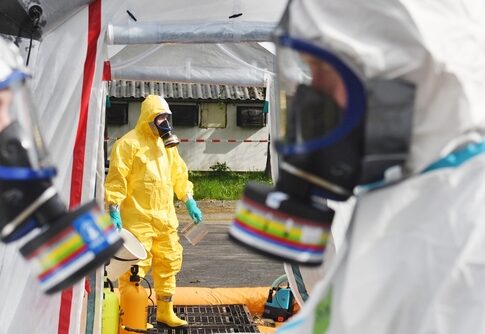Australia’s biosecurity is now under serious threat as a deadly virus suspected of killing hundreds of seal pups inches closer to the continent, exposing the failures of past globalist policies and highlighting the urgent need for strong leadership to defend our borders and national interests.
Suspected Bird Flu Outbreak Raises Red Flags for Australian Sovereignty
Australian scientists discovered the bodies of hundreds of seal pups on Heard Island, an isolated territory over 4,000 kilometers from the mainland. The event, which unfolded in October 2025, has triggered a full-scale investigation, as symptoms observed in the animals are consistent with the highly pathogenic H5N1 bird flu virus. While laboratory confirmation is pending, the sheer scale and suddenness of the deaths have ignited concerns about the virus breaching Australia’s defenses—long touted as the last H5N1-free stronghold in the world. For years, border security and strict quarantine have protected Australia, but with this latest incident, those measures are being put to the test as never before.
Heard Island’s remoteness—more than 1,700 kilometers north of Antarctica and completely uninhabited by humans—makes it an unlikely frontline. Yet, the island is home to massive populations of seals, penguins, and seabirds, all vulnerable to the spread of this aggressive virus. Since 2021, H5N1 has devastated wildlife globally, with outbreaks on multiple continents and even on French Kerguelen and Crozet islands near Antarctica. The potential arrival of the virus on Australian territory signals not only an ecological crisis but a stark warning that international policies and lax enforcement have failed to keep deadly threats at bay.
Biosecurity Under Pressure: The Cost of Globalist Negligence
While authorities race to confirm the cause of the seal deaths, Australia’s Department of Agriculture is on high alert, implementing urgent testing and ramping up surveillance across farms and vulnerable wildlife populations. These steps are vital but overdue. For decades, “open borders” thinking and reliance on unaccountable international agencies have left nations exposed to biological threats. As the virus spreads further south than ever recorded, the consequences of past complacency are now impossible to ignore. Strong, decisive action—prioritized by the new Trump administration in Washington—demonstrates what’s needed to secure national interests and protect the livelihoods of everyday citizens from the ripple effects of unchecked disease.
The risk is not just ecological. Should H5N1 breach the mainland, Australia’s poultry and dairy sectors, critical to both food security and the economy, could suffer devastating losses. Trade restrictions, supply chain disruptions, and increased costs for biosecurity are looming possibilities. Farmers, already battered by inflation and regulatory overreach in recent years, now face threats compounded by failures to enforce strong, common-sense protections at the border. This situation serves as a cautionary tale for every nation that values sovereignty, self-reliance, and the rule of law.
Scientific Uncertainty and the Need for Transparent, Accountable Leadership
While scientists acknowledge that laboratory results are pending, many point to the context and rapid spread of H5N1 as strong indicators that the virus has reached Heard Island. Ecologists warn of potential cascading effects on isolated wildlife populations—effects that could take years to reverse, if at all. The Australian Antarctic Division and Department of Agriculture have pledged to continue monitoring, with plans to revisit the island by year’s end. Meanwhile, conservation groups and international partners watch anxiously, hoping the lessons of the past—when politics and bureaucracy delayed action—will not be repeated. The Trump administration’s renewed focus on border and biosecurity underscores the need for policies grounded in national interest, not globalist groupthink.
Limited data remain a challenge, but the facts are clear: border security, decisive government action, and vigilance against outside threats are non-negotiable for any nation that values its people and its way of life. As Australians await test results and brace for possible economic shocks, this incident stands as a stark reminder that weak policies and open borders invite chaos—while strong, principled leadership is the first and last line of defense.
Sources:
Bird flu: H5N1 may have killed hundreds of seal pups on remote Heard Island, Australia
Hundreds of dead seal pups spark bird flu fears on sub-Antarctic island
Bird flu spread raises fears of new crisis amid deaths of seals

